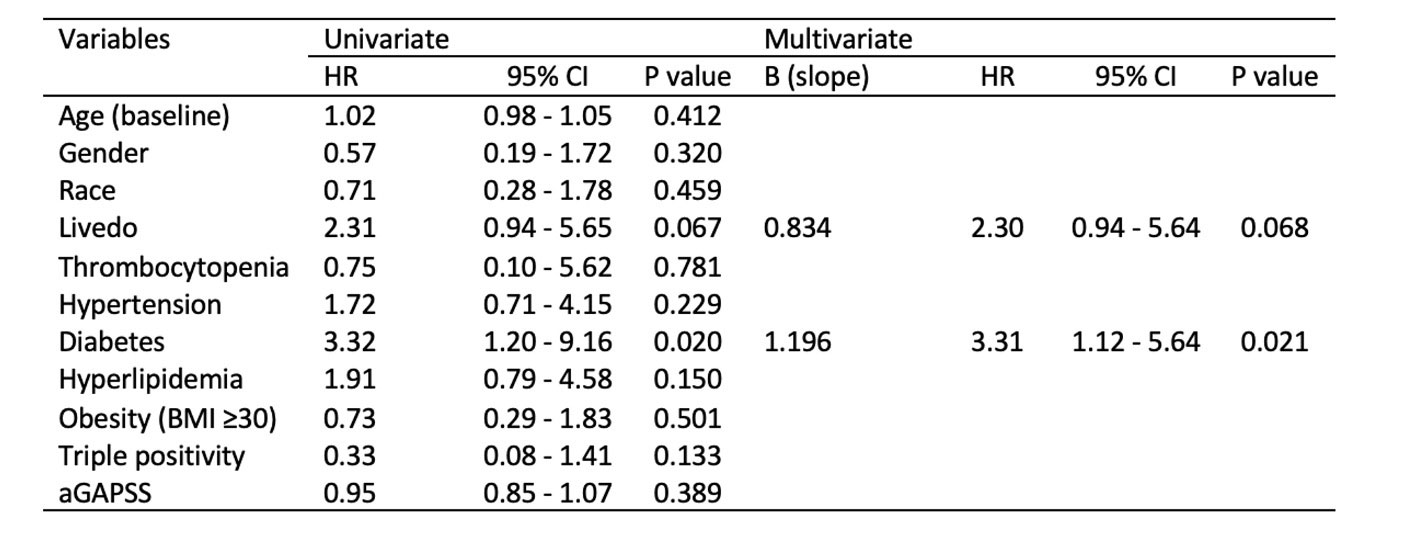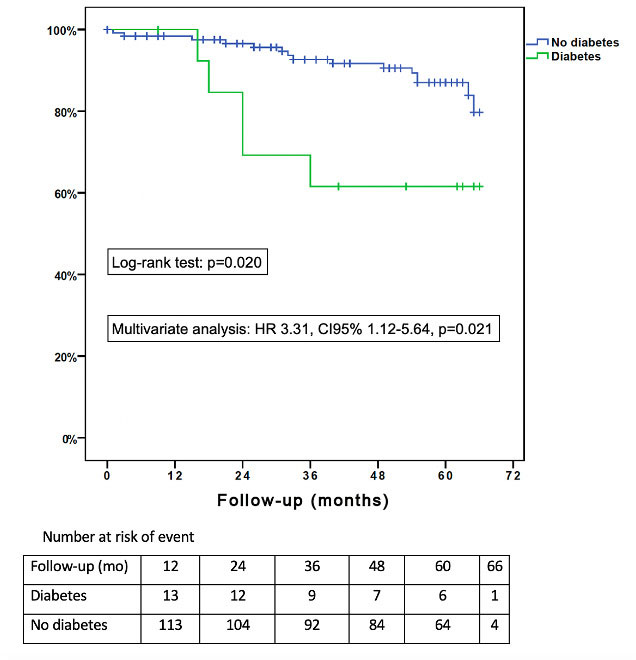Session Information
Session Type: Poster Session B
Session Time: 9:00AM-10:30AM
Background/Purpose: To estimate the incidence rate of new thrombotic events in a large single-center prospective cohort of primary antiphospholipid syndrome (PAPS) patients after approximately 5.5 years of its creation, and to understand risk factors associated with the occurrence of a first incident thrombotic event.
Methods: All patients fulfilled the updated criteria for thrombotic PAPS. For the calculation of the incident thrombosis rate, patients could contribute with more than one event since all of them were continuously at risk of thrombotic events. For the analysis of risk factors associated with the occurrence of a first incident thrombotic event, patients were followed until the occurrence of a first thrombotic event (incident cases) or until their last outpatient visit (non-incident cases). For statistical analysis, we used Kaplan-Meier curves, log-rank test, and Cox proportional hazards (including variables with p< 0.10 in the univariate analysis), as appropriate.
Results: We included 135 PAPS patients. Most of them were females (85.2%) and the mean age at baseline was 43.2±12.6. Arterial hypertension and diabetes were present in 40.0% and 10.4%, respectively (Table 1). Total follow-up was 601.8 patients-year. During our study, 23 thrombotic events (10 ischemic strokes, 12 venous thromboses, and 1 thrombotic microangiopathy) were diagnosed in 20 patients, which led to an incidence rate of 3.82 cases per 100 patients-year. INR values at the time of thrombosis were known in 19 events; in 12 of them (63.2%), INR was within the proposed target. When we analyzed the occurrence of a first thrombotic event, the cumulative incidence was 14.8% at the end of 66 months. The mean time for the occurrence of a first thrombotic event was 33±19.4 months. In the multivariate analysis, diabetes independently correlated with the occurrence of a first thrombotic event (HR 3.3, CI95% 1.1-5.6, p=0.021) (Table 2 / Figure 1).
Conclusion: Incident thrombotic events were common in our cohort, most of them with INR within target. Diabetes was associated with a 3-fold risk of a new first thrombotic event in primary APS patients.
To cite this abstract in AMA style:
Balbi G, de Jesús G, Signorelli F. Analysis of Recurrent Thrombotic Events in a Large Single-center Primary Antiphospholipid Syndrome Cohort: Results from APS-Rio Cohort After over Than 600 Patients-year of Follow-up [abstract]. Arthritis Rheumatol. 2022; 74 (suppl 9). https://acrabstracts.org/abstract/analysis-of-recurrent-thrombotic-events-in-a-large-single-center-primary-antiphospholipid-syndrome-cohort-results-from-aps-rio-cohort-after-over-than-600-patients-year-of-follow-up/. Accessed .« Back to ACR Convergence 2022
ACR Meeting Abstracts - https://acrabstracts.org/abstract/analysis-of-recurrent-thrombotic-events-in-a-large-single-center-primary-antiphospholipid-syndrome-cohort-results-from-aps-rio-cohort-after-over-than-600-patients-year-of-follow-up/



